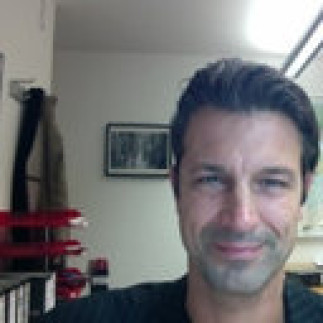Attention! Beware!
Changement de salle / New room : C-1017-02
---------
Translating to Transform Society: Buber/Rosenzweig’s and Meschonnic’s Bible-Translations
The Bible is the text par excellence to demonstrate the cultural importance of translation – it is a foundational text for all Christian societies and has had a fundamental impact on the entire world. This paper presents and analyses Franz Rosenzweig and Martin Buber’s retranslation of the Bible in the 20th century, in view of its intention to have a cultural impact on Germanness with a ‘foreignising’ translation. This translation attempted to create a version of the Bible which allows for a new access to faith and establishes a space for the Jewish/Hebrew tradition in Germany, offering German Jews a new identity and creating a closer bond between Christian and Jewish Germans. It was presented less as Jewish or sectarian, but as modern and universal. Buber and Rosenzweig pursued these goals with linguistic means, trying to find German equivalents for Hebrew notions and structures by developing innovative methods, showing how translating foreign linguistic forms can shape a language and has the potential to considerably change worldviews.
The paper then compares Buber and Rosenzweig’s translation strategy with the one of Henri Meschonnic’s Bible translations and with his theory of language in the wider sense. Meschonnic worked throughout his life on a ‘poetics of society’ and translating the Bible was not only a fundamental and formative experience shaping his ideas on language and society, it was also the lever for his project to transform Western episteme altogether, by integrating a way of thinking based on the rhythm of the Bible. This was for him the contrary of theological thinking and the basis for his theory of rhythm; it enables to think society without the persisting hierarchical structures.
Buber and Rosenzweig, as well as Meschonnic, were convinced that their translations can have an impact on the system of life. Despite Meschonnic’s criticism of his predecessors, the parallels are remarkable and both versions evolve around an interesting notion of rhythm, focusing on its semantic dimension, its ‘signifiance’, that is, its ‘way to mean’: the signifying process of how sound and patterns organise language into meaningful configurations. Learning what language does, from the original Bible via its translation, is, according to Meschonnic, a means to change our conception of the subject, of the ethical, of the political, of the individual, and of society altogether.
-------------------------------------------------------------------------------------------
Avec l'accord de la Pre P.-P. Boulanger, de l'Université Concordia, qui est à l'origine de son organisation et que nous remercions à cette occasion, la conférence sera rediffusée sur Internet ultérieurement.

